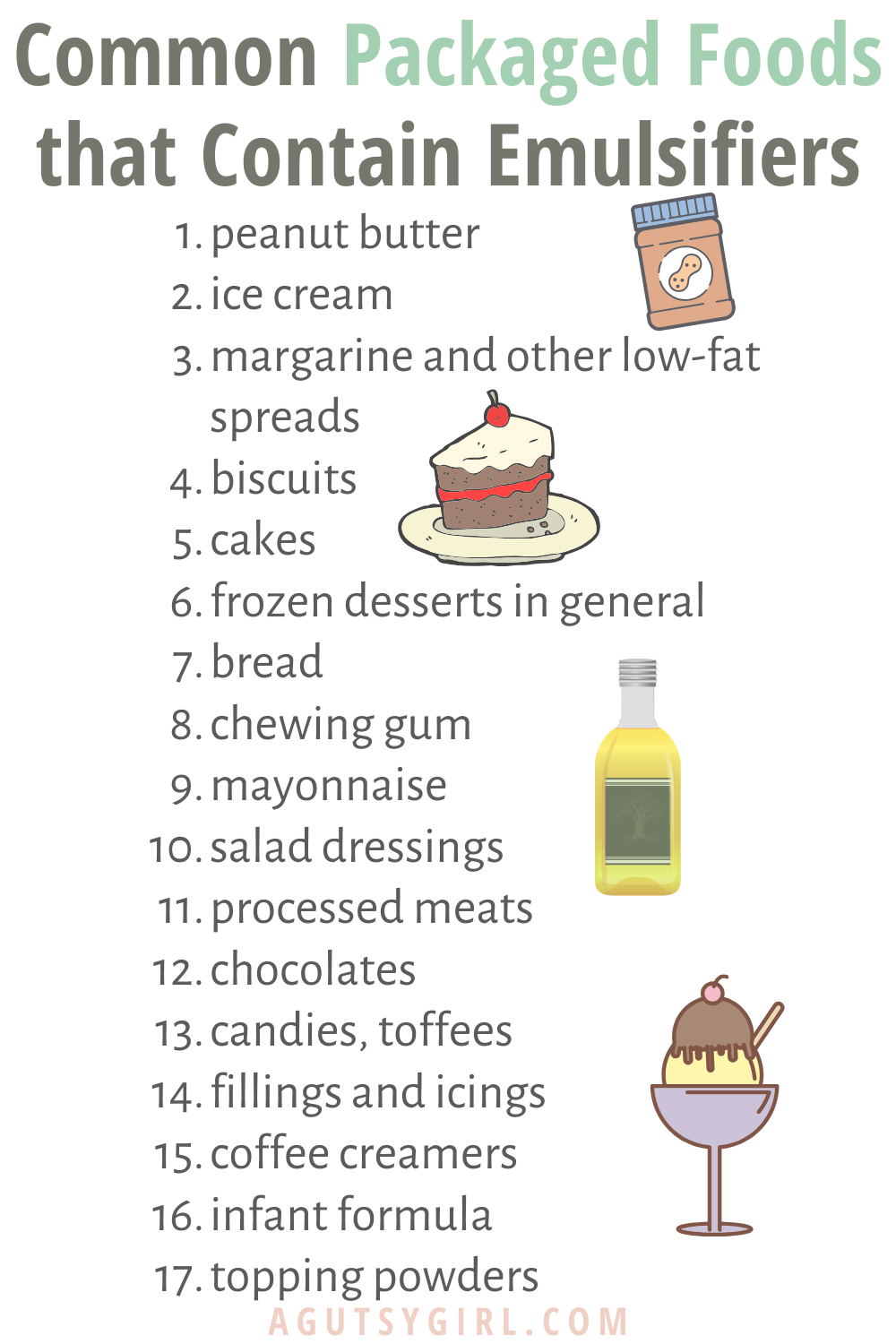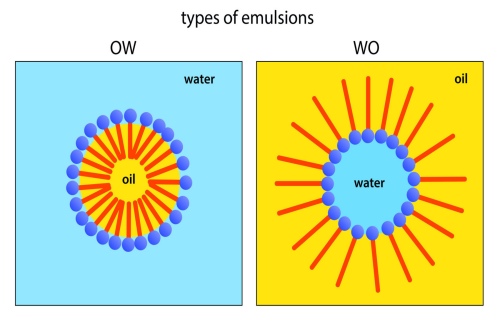Emulsifiers in Industrial Paints: Why They're Crucial for Consistency
Emulsifiers in Industrial Paints: Why They're Crucial for Consistency
Blog Article
The Science Behind Emulsifiers and Their Significance in Modern Production
Emulsifiers play an essential duty in modern production, acting as the unsung heroes that mix oil and water for a broad array of products. As consumer choices shift in the direction of cleaner tags, the demand for innovative emulsifiers is growing.
What Are Emulsifiers?
Emulsifiers are important representatives in the globe of food and product manufacturing, acting as the adhesive that binds 2 otherwise immiscible liquids, like oil and water. Typical instances include lecithin found in egg yolks and soybeans, and mono- and diglycerides utilized in numerous refined foods.

When you whip up a salad dressing or enjoy a velvety treat, emulsifiers assist maintain that excellent texture. They ensure your items have a constant mouthfeel and appearance, improving your total experience. Without emulsifiers, many foods would separate, resulting in unfavorable structures and flavors. Following time you take pleasure in a smooth sauce or spread, keep in mind the unrecognized heroes-- emulsifiers-- that make it all feasible.
The Chemistry of Emulsification
When you mix oil and water, you might notice they do not blend easily; that's where the chemistry of emulsification comes right into play. To conquer this challenge, emulsifiers are used.
These particles have a hydrophilic (water-attracting) head and a hydrophobic (water-repelling) tail. When you add an emulsifier, its particles place themselves at the oil-water interface, decreasing surface area stress and allowing the beads to blend. The emulsifier forms a safety layer around each droplet, preventing them from integrating back into different layers. Comprehending this chemistry is vital for attaining stability in items like dressings, creams, and sauces, making emulsification vital in modern production.
Types of Emulsifiers
Various kinds of emulsifiers play essential functions in maintaining mixtures of oil and water. Natural emulsifiers, like lecithin from egg yolks or soy, are obtained from plants and pets, making them popular in food products.
On the other hand, artificial emulsifiers, such as mono- and diglycerides, are chemically crafted to enhance stability and shelf life. They're generally made use of in processed foods and cosmetic products.
Furthermore, you could stumble upon non-ionic, anionic, and cationic emulsifiers, each with distinct properties that influence their performance. Non-ionic emulsifiers, for example, work well in a variety of pH levels, while anionic emulsifiers often tend to do far better in alkaline problems. Recognizing these kinds can help you choose the right emulsifier for your particular application.
Systems of Emulsion Formation
Comprehending exactly how solutions develop is necessary for developing secure combinations of oil and water. Solutions take place when you spread little beads of one liquid into another immiscible liquid, such as oil in water. This process calls for power, usually provided via anxiety or mixing. When you introduce an emulsifier, it reduces the surface stress in between both liquids, allowing them to mix even more conveniently.
The emulsifier molecules have a hydrophilic (water-attracting) head and a hydrophobic (oil-attracting) tail. When you include an emulsifier, these molecules arrange themselves at the oil-water interface. The hydrophilic heads connect with water, while the hydrophobic tails anchor into the oil. This produces an obstacle that maintains the droplets, stopping them from integrating.
Applications of Emulsifiers in Various Industries
Emulsifiers play a crucial function throughout various industries, making your preferred foods smoother and much more satisfying. In cosmetics, they improve product appearance and security, guaranteeing a pleasant application experience. And also, in drugs, they assist deliver crucial ingredients efficiently, boosting total effectiveness.
Food Industry Utilizes
While you might not understand it, emulsifiers play an essential function in the food sector, enhancing the structure, security, and rack life of numerous items (Emulsifiers). They're generally found in salad dressings, sauces, and mayonnaise, assisting to mix oil and water for a smooth, regular product. In baked products, emulsifiers enhance dough handling and preserve moisture, resulting in a much better texture and prolonged freshness. They're likewise vital in dairy items, where they support solutions in creams and gelato, stopping splitting up. Even in treats, emulsifiers assist keep crunchiness and stop stale tastes. By ensuring harmony and quality, emulsifiers are considerable to supplying the delicious products you delight in on a daily basis, making them an indispensable component in modern-day food manufacturing.
Cosmetic Formulas Benefits
When it pertains to aesthetic see this website formulas, emulsifiers are important for producing items that feel elegant and execute successfully. They assist mix oil and water, making sure a smooth and stable uniformity in lotions, creams, and serums. You'll see that emulsifiers improve product security, protecting against separation and extending life span. This implies you can appreciate your link favorite cream without fretting about it spoiling too quickly. Additionally, emulsifiers enhance the application experience, permitting even distribution and much better absorption right into the skin. By utilizing emulsifiers, you additionally attain a more attractive structure, making your cosmetics feel wonderful on your skin. In general, emulsifiers play a crucial duty in delivering high-quality cosmetic products that fulfill your elegance needs.
Pharmaceutical Applications Overview
In the pharmaceutical industry, emulsifiers are vital for developing efficient medications. You'll locate emulsifiers in numerous dose kinds, like lotions, lotions, and liquid suspensions, improving the bioavailability of medications.
The Effect of Emulsifiers on Product Quality

By making certain stable emulsions, you minimize the danger of perishing and expand service life, inevitably conserving you time and cash. You'll also locate that emulsifiers can boost the bioavailability of active ingredients in your products, making them more effective for consumers.
Moreover, they enable you to create innovative formulations that satisfy varied consumer demands. Whether you're crafting a creamy clothing or an elegant cream, emulsifiers are necessary for accomplishing the preferred results. Simply put, by understanding and leveraging the effect of emulsifiers, you can significantly boost the high quality of your products.
Future Patterns in Emulsifier Development
As the demand for cleaner labels and sustainable her explanation products rises, the development of brand-new emulsifiers is established to evolve substantially. You'll notice a change in the direction of plant-based and all-natural emulsifiers, driven by consumer choices for active ingredients that are eco-friendly and less refined. Technologies in biotechnology will likely boost the capability and performance of these emulsifiers, enabling producers to create stable formulas with fewer additives.
You may additionally see an increase in multifunctional emulsifiers that not just maintain solutions but also boost flavor, texture, or nutritional worth. This pattern can streamline active ingredient listings while boosting item performance.
Additionally, with advances in nanotechnology, emulsifiers could be crafted at the molecular degree to attain extraordinary security and effectiveness. Emulsifiers. As you check out these trends, you'll discover that the future of emulsifier development is not practically performance, but likewise about welcoming sustainability and transparency in components
Frequently Asked Questions
Are Emulsifiers Safe for Intake in Food Products?
Yes, emulsifiers are generally risk-free for usage in food. They've been thoroughly researched and approved by food safety and security authorities, so you can enjoy your favorite foods without stressing over their effect on your health.
Can Emulsifiers Be Derived From Natural Sources?
Yes, you can derive emulsifiers from all-natural resources. Ingredients like lecithin from egg yolks or soybeans and casein from milk prevail. These all-natural emulsifiers aid maintain mixes without artificial additives, making them preferred in different products.

Exactly How Do Emulsifiers Affect Rack Life of Products?
Emulsifiers support combinations, avoiding splitting up and perishing - Emulsifiers. By maintaining harmony, they expand items' service life, making sure freshness and quality. You'll notice that emulsifiers aid keep your favored foods and cosmetics carrying out more than time
What Are Possible Adverse Effects of Emulsifiers?
You may experience digestive concerns when consuming products with emulsifiers, as they can disrupt intestine germs. Some studies suggest potential web links to inflammation or allergies, but a lot more study is required to fully understand these impacts.

Exist Alternatives to Typical Emulsifiers?
Yes, there are choices to standard emulsifiers. You can check out choices like natural gum tissues, starches, or lecithin. Each alternative offers unique residential or commercial properties, so experiment to discover what works best for your details application.
Report this page